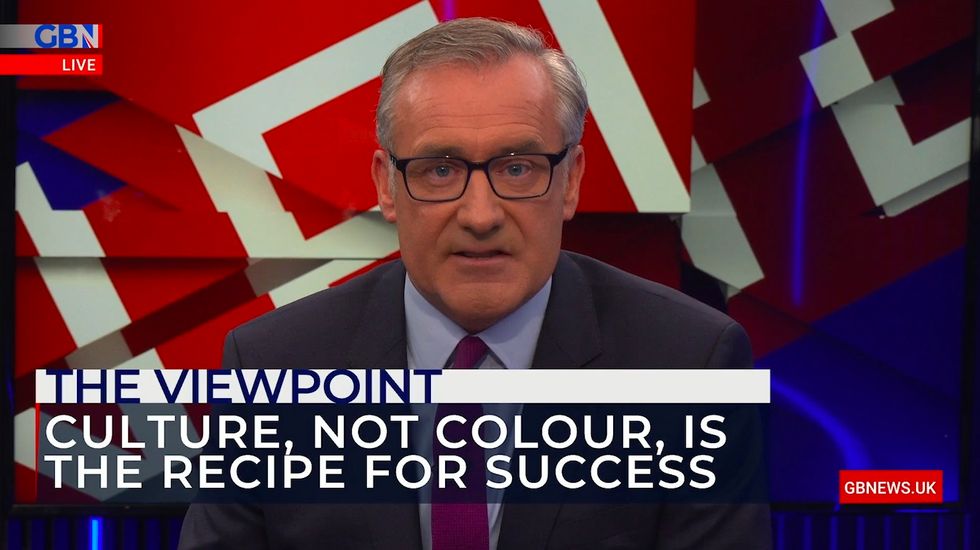Colin Brazier: The race relations industry says it’s all about colour. It might just be about culture


One of the daftest myths to have been peddled by our increasingly powerful race relations industry, is that everyone who isn’t white is sort of the same. They face the same discrimination, the same hurdles to advancement, the same want of white privilege.
This lumps all non-white Britons together as a homogenous mass under the meaningless acronym BAME. Black And Minority Ethnic. In a world where we are encouraged to celebrate diversity, this seems strange. The differences between our ethnic communities are every bit as big, sometimes bigger, than those between those who aren’t white and those who are.
I say all this because today offers us a date from history that vividly touches on my point. On this day in 1972 the military dictator who ran Uganda, Idi Amin, ordered the expulsion of his country’s Asians. This was an act of ruinous economic self-harm.
These entrepreneurial Indians formed the backbone of Uganda’s economy. But Idi Amin couldn’t care less. With the Indians gone, he gave their confiscated property and businesses to Ugandans from his own ethnic background, who promptly ran them into the ground.
To be clear, Idi Amin was bonkers. Not just eccentric and neurotic in the way of all demagogues. But off-in-the-deep-end doolally. He styled himself "His Excellency, President for Life, Field Marshal Al Hadji Doctor Idi Amin Dada, VC, DSO, MC, Lord of All the Beasts of the Earth and Fishes of the Seas and Conqueror of the British Empire in Africa in General and Uganda in Particular."
The VC, by the way, was the Victoria Cross, which he awarded himself, along with the claim that he was the uncrowned King of Scotland.He admitted to cannibalism, likening the taste of human flesh to leopard meat, though slightly saltier. He threw people he didn’t like into the Nile, including 4,000 disabled people, there to be eaten by crocodiles.
We can all agree the world is better off without him. He died in Saudi Arabia in 2003, with some of his 60 children close by.
By the time of his death the Ugandan Asians Idi Amin had expelled at a moment’s notice had proved the folly of his actions. Up to fifty thousand of them were British passport holders and their children have proved to be as talented in Britain, as their parents were in Uganda.
My first job in telly was given to me by a Ugandan Asian, the then boss of Yorkshire TV’s news division, Ali Rashid. You may not have heard of him, but you will have heard of Priti Patel. Our Home Secretary’s parents left Uganda just before Amin came to power.
So what lessons from history can we derive from all this? Well, one relates to immigration. The arrival of of 30 to 50,000 Ugandan Asians in the early 1970s was hugely controversial and provoked a backlash. There was a serious proposal for them to be given safe passage, not to Britain but to a new home on the Falkland Islands. By contrast recently the number of immigrants arriving in Britain each year has been running at about 300,000, with far less panic than was seen in 1972.
The other lesson to take away from this relates to the meaninglessness of the BAME label. Ugandan Asians have outperformed their new white neighbours on every available metric. This isn’t to say Priti Patel hasn’t faced racism in her life – she still does, though increasingly from the left – but it is to acknowledge the crassness of pretending that we can divide our country between White Britons and BAME Britons.
The activists who’ve done this have tried to encourage a sense of pan-minority solidarity. They would probably accuse me of trying divide and rule. This is the stuff of student politics, which has somehow come to dominate our national conversation about race.
The reality is there in the data. British Ugandans, be they of African or Asian heritage, do better now in Britain than those with Caribbean or Pakistani roots. And much better than the white working class. What matters is outlook, aspiration, family stability. The race relations industry says it’s all about colour. It might just be about culture.